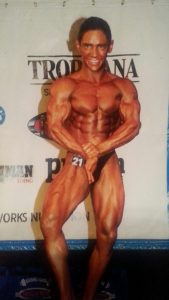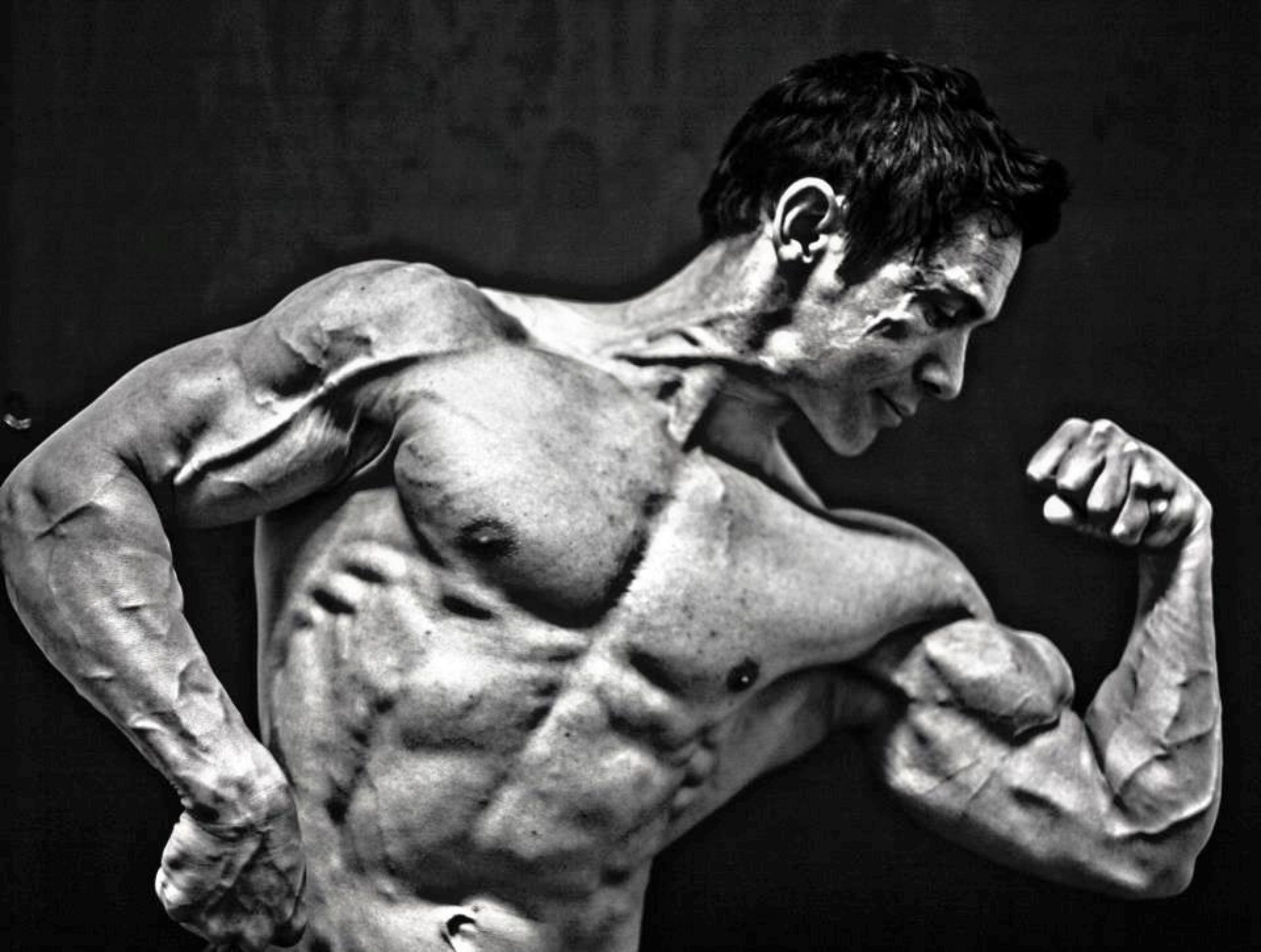
The first bodybuilding shows for 2012 are done and dusted with many more to come! Now is as good a time as any for first time athletes to throw their hat in the ring and get up onstage. But where do you begin? Whose advice should you follow? What should be your expectations? This all depends on a number of different factors- How long have you been training for? How much muscle and body fat do you have now and how disciplined are you at following through on goals?
I can remember my first show like it was yesterday, it was 1998 and my second year of university; I was lucky enough to have my Uncle Al who was a successful bodybuilder give me some guidance on all aspects of competing. As I was a poor student my diet for 4 months was canned tuna, mixed vegetables and SHAPE 2000 protein powder (I haven’t eaten tuna since then by the way). To cut a long story short the training and diet was HARD but it worked. I managed to lose 10 kg and get in good enough shape to win my first show- the open short Athletic class- I was stoked and hooked on competitive bodybuilding for life! I have to say that competing has had so many benefits for me- It proved to me that being disciplined, focused and having belief in yourself can pay off, but the biggest thing I realised in relation to bodybuilding was that I would need to keep learning about myself, training, diet and presentation on stage if I was to continue to make improvements.
So I was thinking the other day; what would I tell others if I was in the position to offer advice to someone if it was their first time. Below are the top 9 things I would encourage them to do.
Be realistic. When I first started competing in 1998 I saw a number of athletes be given false expectations of what they could achieve up onstage. One guy had only been training for 6 months and still had a bit of a spare tyre around his stomach. Good on him for losing 15kg of body fat but his personal trainer had not been honest with him. The guy was dejected to say the least when he came last and saw how far he still had to go to be competitive; he threw in the towel and never competed again. Make sure you have checked out a few competitions as a spectator first to see for yourself what you should aim to look like. Be realistic with what you have. Some people can walk into the gym and after 6 months look like a competitive athlete while others can’t. I had been doing weights for 10 years before I did my first show. I am also a natural trainer for life with a small bone structure so I will never be a mass monster- but I am realistic about what I can achieve and I am happy with that!
Set your goals well in advance and choose the appropriate competitive arena for you. Select a show far enough away so that you have ample time to lose the body fat slowly so you can maintain all the muscle you have worked so hard to build. For most natural athletes losing half a kilo a week is a healthy amount of weight loss without affecting your training and muscle size. For me I keep close to my competitive weight as I have found trying to bulk up to add size never worked for me. By the time I had dieted down I was never much if at all bigger and felt tired from all the extra work I had to do to lose the weight. Also make sure you go in the right federation for you, if you want to compete naturally you will need to consider that you may not have enough size to compete in the physique class in some federations. There are also other options like Athletic and Classic for men as well as figure and shape for the women.
Find out as much as you can about pre-contest dieting and training. I have found the best strategy for me is to train in such a way as to maintain all my strength. In fact I have found that because I do not have much fat to lose I can aim to keep improving my lifts right until the last week before a show. My training techniques and style (for me) encourages body fat loss and muscle gain and it involves moderate volume, moderate weight and short rest periods. Again your training style has to suit your genetics and goals so you will need to learn as much as you can and believe in your training system whatever it is. You can always make adjustments for the next show if you feel it did not meet your expectations. Diet again is an individual thing but there are some general rules to start.
- Eat every 2-3 hours or at least 6 times a day with protein at every meal.
- Aim to have at least 1.5-3 grams of protein per kilo of lean body mass.
- Eat a wide range of low glycaemic and nutritious vegetables.
- Make sure you get at least 30-40 grams of fibre a day (made up from a range of vegetables, flax fibre and psyllium husks).
- Get in some form of Omega 3 fatty acids (fish or flax oil)
- Drink 3-4 litres of water a day.
- Get rid of all processed foods. (Yes; bread is processed!)
- Find ways to serve these foods so they taste good and are enjoyable!
- Use natural supplements to augment your dietary needs.
When you get help from someone like a personal trainer make sure they have competed before. Pick someone who has walked the walk and that will provide support right to and on the day of the show. Apart from the training and dieting there is the preparation required backstage like pumping up and tanning which can make all the difference come contest day. In general I found that I spend most of my pump up time on my upper body and less on my legs as some of the shape in my legs can be hidden from a pump. Also I am not a fan of sun beds or applying a base tan. My tan has always looked its best when my wife has applied Dream Tan on the day of the show. Also they should be there for you when you aren’t feeling great (just like anything that requires great effort and discipline it will get tough) to provide the right guidance and support.
Learn to pose earlier rather than later. You will need to find someone to help you with the compulsories (these vary slightly from federation to federation so check on their respective web-sites), picking music and putting a posing routine together. I think you should begin posing when you begin your diet. Have someone you trust critique your physique and make adjustments to the poses so you look your best. You want to make yourself look as X-framed as possible making your legs and upper body look their biggest and your waist as small as possible from all angles (front, sides and back). Learn to hold poses for at least 30 seconds where you can strain the heck out of your muscles while still being able to maintain a relaxed and smiling face.
Learn techniques to stay focused and positive. For me I write my goals for the year in my training diary and often write positive statements or reward myself when I meet set targets. I also say (in my mind) positive affirmations to myself every chance I get during the day. These allow me to stay focussed, positive and avoid negative thoughts and self- doubt that creep up on you when you are tired. Also surround yourself with happy, supportive people as this will help your mood too. You might also have a particular activity outside of bodybuilding that makes you feel good so make sure whatever it is- do it!
Keep a training and diet log leading up to the show. I have kept a log of my training since 2004 and began writing down everything I did (training & dietary) since 2006 with information about how I looked and what I ingested right up to when I got on stage. This has provided invaluable information in terms of what works for me. I know that with hardly any changes apart from slight water and sodium adjustments my diet stays exactly the same even on the day of the show. One thing I do which I think is important for all natural athletes is to avoid dehydrating days from a show. Your muscles are at least 70% water and if you dehydrate you will look flat and feel weak (read my articles on waterworks I and II). Looking at the last show I competed in I had 5 litres of water Monday to Thursday. Friday I had 3 litres and on the day of the show I sipped water whenever I was thirsty. This allowed me to compete with full muscles and I felt good! Often when people say they were holding too much water it usually means they just weren’t lean enough.
Do not change anything drastically at the end. A week out from the show and you look amazing so why would you change anything? Keep to the programme. If you are someone who handles carbs well then a carb deplete and load may work for you but make sure it is planned and that someone is there to help you and knows what they are doing and knows how your body reacts to foods. I think these things should be sorted out well before the show –why would you leave it to chance; you’ve just worked your butt off for the last 12-20 weeks. Stick to listening to one person and avoid listening to all the experts at the gym. All it will do is confuse you and make you start to question what you are doing. You can always make small adjustments for the next show and at least then you will know what worked for you or didn’t.
Have fun. The whole point of getting up onstage is to show off all the hard work you have put in so enjoy it. But if you are grumpy and miserable for the whole time you are dieting then competing may not be for you. You have to love doing it- the training, the diet, the whole lot. Be courteous and friendly to your competitors and remember, although there are no big pay outs financially at the end of it the experience in its’ self can be rewarding in so many other ways. So if you are keen to get your trunks on and jump onstage consider some of these ideas and I wish you all the very best for your first show!
